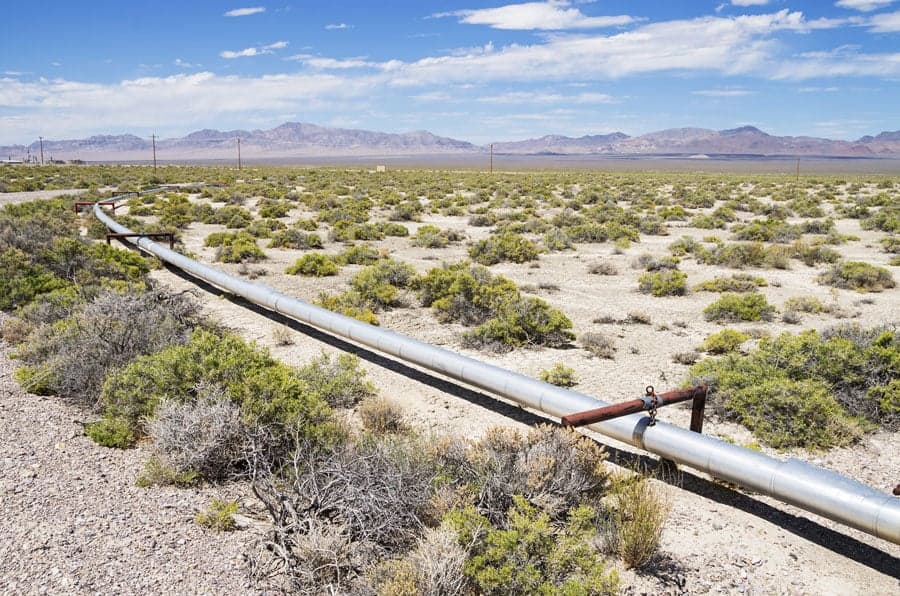Since 1986 there have been over 8,000 "significant" oil and gas spills reported by the Pipeline and Hazardous Materials Safety Administration of the US Department of Transportation. That's equivalent to a major spill every two day for the past 32 years.
In early July the now-former head of the Environmental Protection Agency, Scott Pruitt, resigned amid a series of ethical breaches, including his cozy relationship with fossil fuel lobbyists. Government ethics experts, according to Scientific American, said Pruitt’s connection to lobbyists working for the Canadian energy company Enbridge, at the time when the EPA approved expansion of an Enbridge pipeline, raised red flags.
Pipeline spills are common — much more common than most people think. Indigenous and environmental groups continue to resist new pipelines because spills jeopardize land and livelihoods, especially when the pipeline crosses ecologically and culturally important places.
Public data already tells a story about pipeline spills. Since 1986 there have been over 8,000 "significant" oil and gas spills reported by the Pipeline and Hazardous Materials Safety Administration (PHMSA) of the US Department of Transportation. That's equivalent to a major spill every two day for the past 32 years.
“Significant” spills have a very specific definition—they either caused a fire, left someone injured, involved a large volume of oil or gas release or resulted in over $50,000 in damages. PHMSA classifies over 1,500 of these incidents as "serious," meaning the spill resulted in a fatality or injury requiring in-patient hospitalization.
New pipelines are also being resisted because they make no sense in the context of climate change. Take the now iconic Keystone XL, a pipeline that would carry tar sands, some of the most carbon-intensive oil. According to a 2015 study funded by the Department of Energy, Canadian tar sands emits 18 percent more greenhouse gases when processed into gasoline compared to conventional crude.
Despite the ubiquity of spills and the scientific evidence that new fossil fuel infrastructure is inconsistent with climate action, regulators continue to approve new pipelines. In November of last year TransCanada’s existing Keystone pipeline spilled 9,700 barrels of crude oil in rural South Dakota making it the 7th largest oil spill in the US since 2010.
Just four days later, Nebraska regulators granted the extension of the Keystone pipeline as Keystone XL. If completed, Keystone XL will transport 830,000 barrels of heavy crude daily from the Alberta tar sands to Nebraska, where it connects to refineries as far south as the Gulf Coast in Texas. Although rejected by former President Obama due to the pipeline’s negligible impact on the nation’s economy, employment, gas prices and energy security, it was approved during Trump’s first days in office through an executive order.
To be sure, companies like Enbridge and TransCanada claim new pipelines will be safer than existing ones, and that alternative forms of transport like rail present their own risks. Proponents of new pipelines also argue that these infrastructure projects create important jobs. Upon signing the executive order to approve Keystone XL, President Trump remarked “A lot of jobs, 28,000 jobs. Great construction jobs.”
But according to a report by Cornell University, however, expected construction jobs are closer to 2,500-4,650 and just 35 percent are likely to be permanent, based on data from the US State Department.
Pipeline opponents note that renewable energy would be a better place to invest the $7 billion slated for Keystone XL. According to a World Bank report, wind and solar produce about 13.5 jobs per $1 million dollars spent in the US, compared to the 5.2 jobs created in oil and gas.
Trump recently approved number two EPA official Andrew Wheeler as Pruitt’s interim replacement. Wheeler is a former coal lobbyist, signaling the continuation of a troubling pattern of environmental regulators with uncomfortably close ties to the fossil fuel companies they are supposed to regulate.

